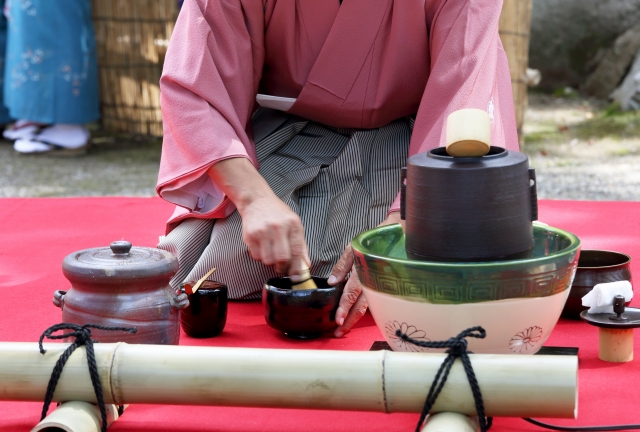Japanese gardens are known for their tranquil atmosphere and lack of noise. Although they are quiet, the serene visuals and pleasant aromas have a calming effect on the mind. These gardens typically feature stones, trees, and waterfalls surrounding ponds, creating a miniature version of natural scenery.

What Silence Tells
It’s hard to describe the peaceful Japanese garden accurately with words alone. The garden’s tranquility can be fully experienced through your senses, particularly sight and smell. The trees and plants vibrant greenery and delightful fragrances make you feel fully immersed in nature.
In addition to the garden’s visuals and scents, sounds contribute to the serene atmosphere. For example, the Deer Scarer (known in Japanese as 鹿威し “Shihi-Odoshi”), a bamboo water feature, adds to the garden’s peacefulness as the bamboo hits against the rock, creating a sharp and soothing sound.

Silence Effects
Describing the experience in words is difficult, but it is truly amazing. The fresh and calming scent of greenery from the trees, combined with sipping Matcha in the garden, creates a soothing and relaxing atmosphere.

Cultural Challenges
In the global business context, quietness is not always viewed positively. However, quietness can have different meanings in Japan, depending on the situation. For instance, it can indicate the need to shut down external noise to think profoundly or when someone suppresses their negative emotions to avoid disrupting business. The Japanese rely on their senses to grasp the meaning of quietness (known as 空気を読む “Kuuki wo Yomu” Kuuki wo Yomu”). This understanding without words is crucial for effective communication and networking in Japan. Nevertheless, quietness is often perceived negatively in global business situations and can be seen as passive, lacking engagement, or attempting to conceal something.
In intercultural communication, using explicit verbal expressions with low-context messages reduces the chances of misinterpreting unspoken matters. It helps to exchange information and opinions more clearly. Additionally, our brains can directly receive sensory cues without needing verbal processing.
I hope that non-verbal sensory cues in objects, situations, and human communication receive proper attention in the global business world and are not overlooked as merely a local niche.
